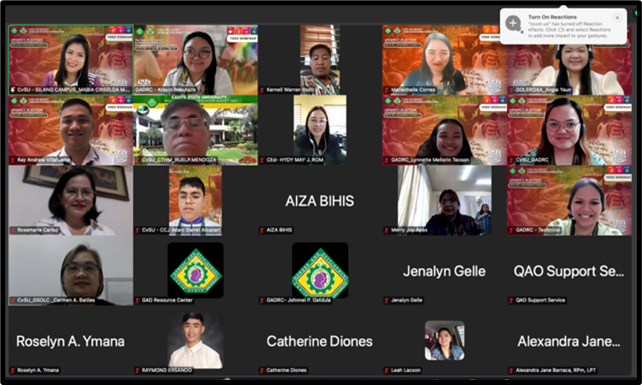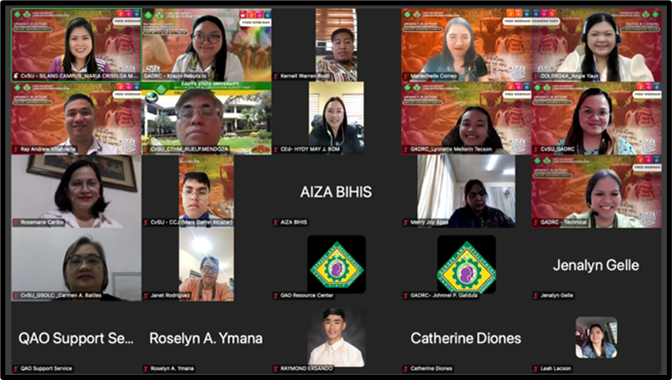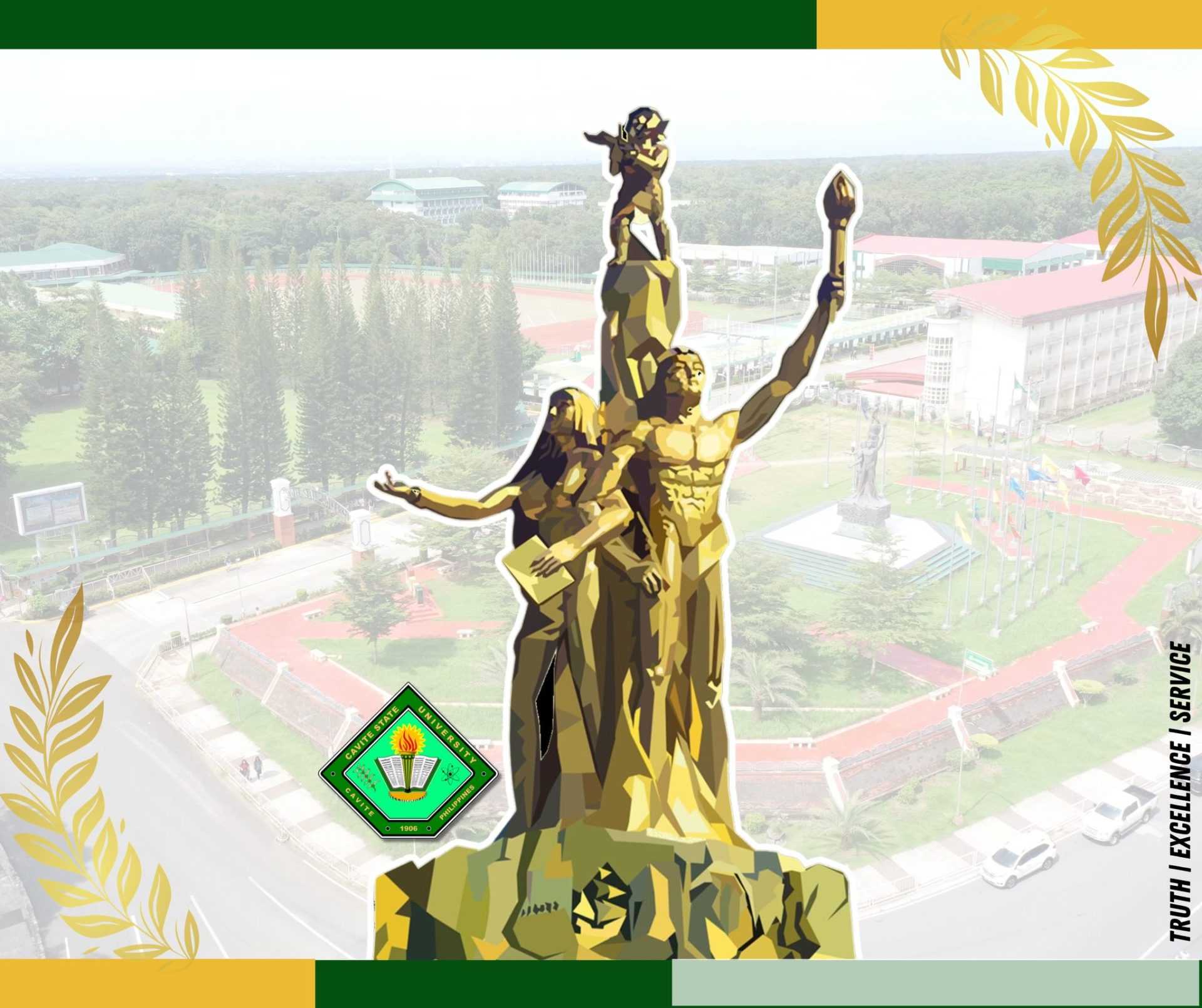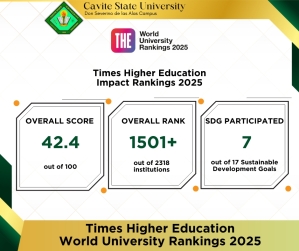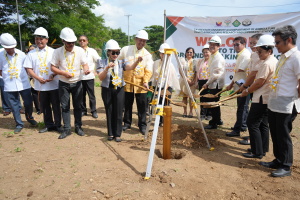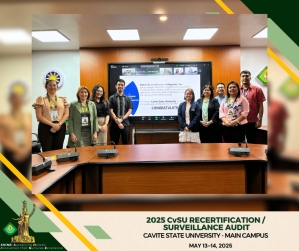![]()
The Cavite State University (CvSU) through the Gender and Development Resource Center (GADRC) successfully conducted a seminar titled “Urgency in Action: Advocating a Child Labor- free Future” on June 30, 2025, via Zoom and Facebook Live.
The primary objective of this webinar is to increase the awareness on sexual abuse and exploitation, particularly on Commercial Sexual Exploitation of Children (CSEC), Online Sexual Exploitation of Children (OSEC), and Child Sexual Abuse an Exploitation Materials (CSAEM); understand the definitions, legal frameworks and best practices for addressing child labor; recognize the different situations that make children vulnerable to the worst form of child labor; and clearly see their role in protecting children from exploitation.
Ms. Aiza E. Bihis, the GAD Coordinator of the College of Engineering and Information Technology, warmly welcomed the participants as she encouraged everyone to actively engage in and support the advocacy of eliminating child labor. She emphasized that child labor is not merely a problem – it calls for decisive action. Ms. Bihis underscored the importance of protecting children’s rights and ensuring they grow up in a safe and nurturing environment.
Ms. Rosemarie B. Caribo, Social Welfare Officer and SHIELD Focal Person, delivered a lecture titled “Child Labor in the Philippines: A Situationer.” She introduced the Strategic Helpdesks for Information, Education, Livelihood, and other Developmental Interventions (SHIELD) – a project aimed at combating child labor. Ms. Caribo discussed the project’s primary objectives and its target groups, which include child laborers, their families, local government units, and even employers of child laborers. She also elaborated on the legal foundations and key components of the SHIELD initiative.
The second topic titled “Worst Forms of Child Labor” was presented by Mr. Ray Andrew P. Villafuerte, Secretariat of RIACAT-VAWC IV-A. He began by defining the worst forms of child labor and explaining key concepts related to it. Mr. Villafuerte highlighted the critical features of trafficking-in-persons (TIP) laws as they relate to child labor, emphasizing that traffickers often prey on individuals from rural, conflict-affected, and impoverished communities. These individuals – including women, children, LGBTQI+ persons, indigenous peoples, and internally displaced persons (IDPs)—are frequently subjected to various forms of exploitation, such as sex trafficking, forced labor, and forced begging. Mr. Villafuerte also examined the legal framework addressing the worst forms of child labor, referencing ILO Convention 182, Section 12-D of Republic Act 9231 (Anti-Child Labor Law), and Section 4(k) of Republic Act 11862 (Expanded Anti-Trafficking in Persons Act of 2022), among other relevant laws. Additionally, he discussed the recovery and reintegration programs for trafficked persons, as well as various projects and support services provided by the Department of Social Welfare and Development (DSWD) to assist survivors and at-risk individuals.
The third topic, titled “Revisiting Child Labor Laws and Related Policies” was presented by Ms. Maria Angelique E. Yaun of the Technical Support and Services Division – Employment Promotions and Workers’ Welfare Unit of the Department of Labor and Employment (DOLE) Region IV-A. She provided an overview of the legal framework governing the employment of children, along with key laws and policies aimed at preventing child labor.
Ms. Yaun also highlighted the various programs and advocacy initiatives led by DOLE to raise awareness and strengthen public support in the fight against child labor. She also introduced the official campaign branding developed by the National Council Against Child Labor (NCACL) and its partner advocates, namely the #BatangMalaya campaign, which unifies all child labor-related initiatives and activities under a common message.
To formally conclude the seminar, Mr. Marc Darrel P. Alcazar, GAD Coordinator of the College of Criminal Justice, delivered the closing message. He expressed his sincere gratitude to the organizers, resource speakers, participants, and all community members and stakeholders who took part in the timely and meaningful discussion on the fight against child labor. Mr. Alcazar emphasized that their presence signified more than mere awareness – it was a powerful act of solidarity and collective commitment to protecting the rights and well-being of children.
